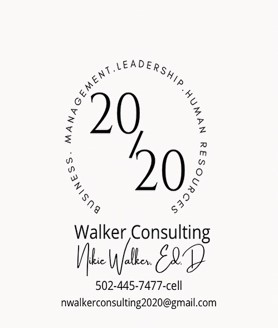

When Nikie Walker, EdD, returned to her hometown of Owensboro, Kentucky, she transferred her skills from working as an OB/GYN group human resources (HR) manager to Advantage Eye Care. This is the practice that her sister, Patricia Ward Adams, OD, and her husband, J. Murray Adams, OD, took over from her father, H. Andrew Ward, OD.
What Dr. Walker realized was that smaller optometric practices have similar human resources issues – and often, these owners don’t have relationships with HR professionals. “Usually, by the time you feel like you need a HR professional, you’re too late,” she says.
So Dr. Walker earned her doctorate in organizational leadership and development, began teaching at the college level and has been consulting with optometrists through state associations and personally. She will be writing a periodic column for Women in Optometry – and that launches here with the important topic of the Dos and Don’ts in interviewing candidates.
Interview Questions: The Dos and Don’ts
by Nikie Walker, EdD
You have a position to fill. Recruitment is a necessary task for the daily function of your office but not a particularly fun activity. You have advertised, received too many emails to count and narrowed it down to 10 candidates to interview. Of those 10, you have received five responses. You have scheduled the interviews on your day off or will fit them in between patients. It is not an ideal situation but necessary for the process.
How can you maximize your time with the candidate, glean the most useful information and pick the best person for the job? There can be a lot of confusion surrounding the questions that you can ask to get to know the applicant and the questions that you cannot ask.
There are many topics that are off-limits when interviewing candidates. Any questions that could impact your decision-making process in a discriminatory manner, intentional or not, could cause trouble down the line.
Topics that are not acceptable to ask about would include the following:
- Age
- Birthplace, country of origin or citizenship
- Disability
- Gender, sex or sexual orientation
- Marital status, family or pregnancy
- Race, color or ethnicity
- Religion
According to Yale University, here are some examples of what seem like innocuous questions but are illegal. These examples are followed by suggestions for how to rephrase them to gather the pertinent information for employment.
Work/Visa Status and Citizenship
- Illegal: Are you a U.S. citizen? You sound like you have an accent, where are you from? Where were your parents born? What is your native language?
- Legal: Are you authorized to work in the U.S.? What languages do you speak (if relevant to the position)?
Marital/Family Status
- Illegal: Are you married? Do you have children? If so, what do you do for childcare? Are you planning to have children soon? Have you ever been divorced? Where is your spouse employed?
- Legal: Are you willing and able to put in the amount of overtime and/or travel the position requires? Are you willing to relocate?
Age
- Illegal: How old are you? When were you born? How long have you been working?
- Legal: Do you have any concerns about handling the long hours and extensive travel that this job entails? Are you at least 18 years of age?
Disability Status
- Illegal: Do you have any disabilities or medical conditions? How is your health? Do you take any prescription drugs? Have you been diagnosed with a mental illness? Have you ever been an alcoholic? Have you ever been in rehab?
- Legal: Are you able to perform this job with or without reasonable accommodation? Do you have any conditions that would keep you from performing this job?
My best advice is to stick with behavioral or situational-based interview questions. These types of questions will allow you to see how the applicant will handle difficult situations in your office or how they have handled difficult situations with their past job experiences.
Here is a list of questions that would be appropriate to ask:
- Why did you apply for this position?
- Tell me about a time when you had to handle a difficult situation with a patient/customer.
- Tell me about a time when you had to handle a difficult situation with a coworker or doctor.
- What are you looking for in an employer?
- What do you know about our company?
- Tell me more about your work history.
- Why should we hire you?
Remember, stick to job-related line of questioning, and your interviews will be a success!
For additional information, visit the following:
Yale article on illegal interview questions
Equal Employment Opportunity Commission topic guidance
Also read an earlier WO story with Dr. Patricia Ward Adams here.
Read other 1-Minute Tips for practice management success here.




